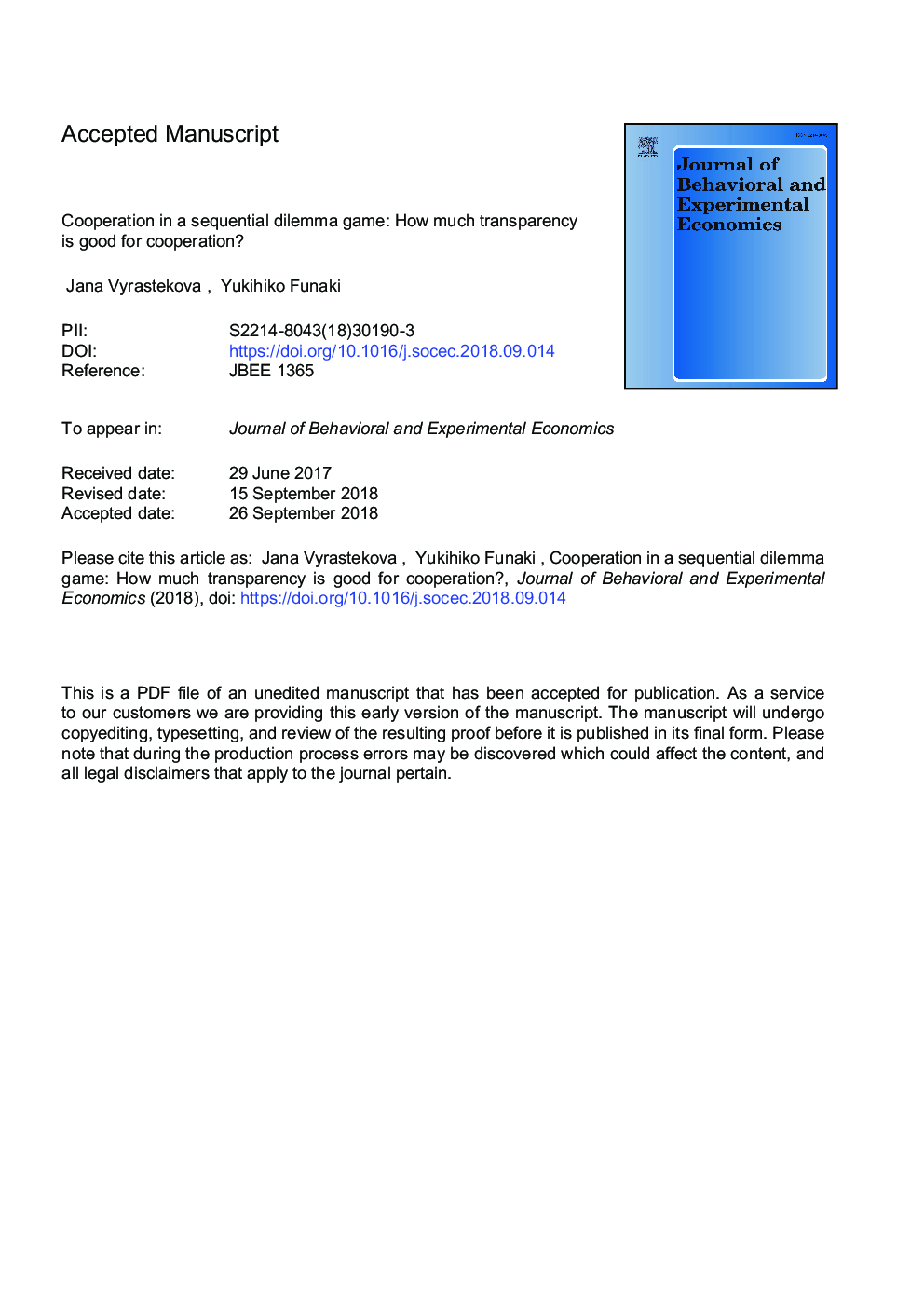| Article ID | Journal | Published Year | Pages | File Type |
|---|---|---|---|---|
| 11023478 | Journal of Behavioral and Experimental Economics | 2018 | 37 Pages |
Abstract
Is cooperation in a sequential social dilemma more likely if players know when it is their turn in the sequence and what others have done before them? Is such transparency beneficial for cooperation? Having no information or having full information on the order of move and on what others have done before in the sequential game leads to the same theoretical prediction: free-riding. However, Nishihara (Nishihara, 1997) proved that full cooperation can be sustained in a class of social dilemma games in a Nash equilibrium if players have partial information. This is the case when they do not know the order of their move in the game and only observe whether or not someone chose to free-ride before them. In an experiment, we implement a game satisfying these conditions. We compare behavior in this game to the same game, but with subjects informed on the order in which they move. Cooperation is not an equilibrium in this case, but we find that cooperation is more frequent in this treatment than in the partial information treatment where cooperation is an equilibrium outcome. We relate our observations to conditional cooperation motivations.
Related Topics
Social Sciences and Humanities
Economics, Econometrics and Finance
Economics and Econometrics
Authors
Jana Vyrastekova, Yukihiko Funaki,
